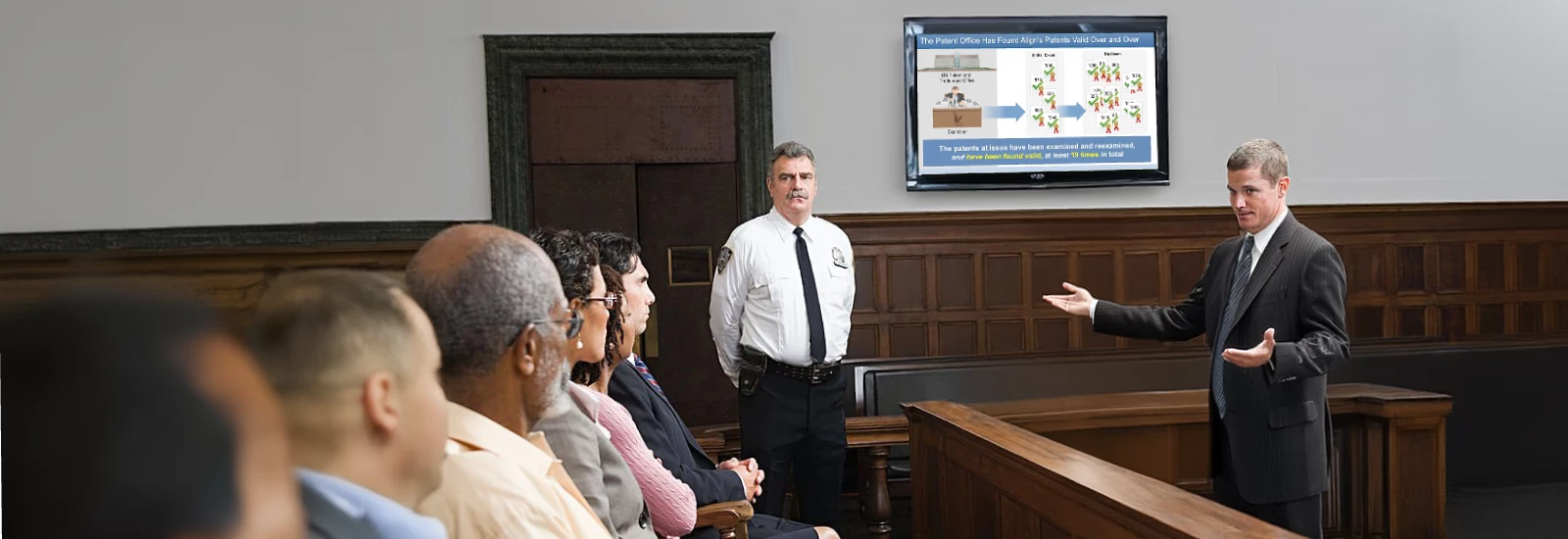Custom trial presentations provide persuasive visuals for juries.
Secret Approaches for Creating Memorable Trial Discussions That Win Situations
In the lawful world, the difference between winning and losing frequently rests on the performance of trial discussions. A well-crafted story not only makes clear the truths yet additionally resonates psychologically with jurors, making complicated lawful ideas extra obtainable. Including aesthetic aids further strengthens this understanding, giving a clear, memorable impact. The real art lies in striking an equilibrium in between logical argumentation and psychological appeal, a dynamic that can emphatically sway a court's decision. What stays to be checked out is how these elements engage in the warm of a court battle.

Utilizing the Power of Storytelling in the Court Room
Why do some trial presentations reverberate even more incredibly than others? In the court room, efficient narration goes beyond mere presentation of realities; it weaves these truths into a compelling story that engages the court's emotions and intelligence.

Making Use Of Visual Help to Improve Understanding
Almost all efficient test presentations benefit significantly from the calculated use aesthetic aids. Charts, layouts, and other visual elements can change complex legal debates into clear, understandable visuals, making them extra accessible to jurors who might not have legal expertise. By aesthetically standing for information, such as timelines of events or connections in between parties, attorneys can develop a stronger influence and facilitate much better understanding.

Integrating these visual aspects calls for careful planning to guarantee they are legally allowable and ethically provided, straightening with the overall situation strategy and appreciating court room rules. - trial presentations
Grasping the Art of Persuasive Interaction
While visual aids substantially boost the quality and impact of trial discussions, just as vital is the attorney's capability to involve in persuasive communication. This ability rests on the mindful expression of disagreements and the critical use language to influence the jury's perception and decision-making process. Successful attorneys acknowledge that every word and expression can discreetly move perspectives and ideas. They concentrate on crafting succinct, engaging narratives that resonate with jurors' values and experiences.
Furthermore, mastering persuasive communication includes the ability to read find out here and react to the jury's non-verbal cues. Attorneys should be proficient at adjusting their delivery based upon the court's responses, demonstrating empathy and authority as required. This vibrant interaction frequently includes a nuanced balance between offering tough realities about his and weaving them into a meaningful, influential disagreement that aligns with the jurors' feeling of justice and fairness, thereby leading them in the direction of a positive verdict.
Implementing Reliable Emotional Appeals
Emotional vibration is a powerful device in trial presentations, where the calculated usage of sob stories can profoundly influence a court's response. Litigators need to sensibly include individual stories, expressive imagery, and engaging narratives that connect directly to the lawful disagreements offered - trial presentations. This method not just humanizes the situation however likewise makes abstract lawful concepts a lot more available and relatable to the court
To apply effective emotional charms, attorneys must concentrate on credibility and importance. Recognizing the group and psychographic composition of the jury aids in customizing psychological appeals that reverberate ideal with best site the target market's values and experiences.

Final Thought
Finally, winning trial discussions pivot on the tactical blend of narration, aesthetic help, and persuasive communication. By weaving an engaging story, deploying impactful visuals, and skillfully balancing emotional and rational charms, lawyers can significantly improve juror interaction and understanding. This complex approach not only clears up complicated lawful concerns yet also fosters a deeper connection with the jury, consequently raising the likelihood of a beneficial decision.